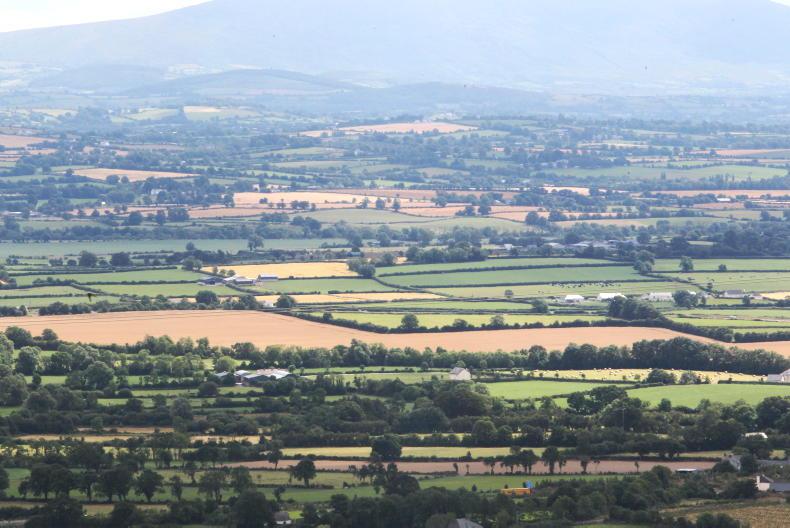Question: I’ve been told that transferring our family farm business into a limited company could help lower our tax bill. I’ll be honest though, I don’t know much about how this works, and I’m unsure if this option even applies to us.
Our family has a 160-acre farm in Cork and we’re currently milking just under 150 cows. The farm has been going well for the past few years and we plan to expand when the right opportunity arises.
While we’re thankful we’re doing so well, especially after a challenging few years, we’re looking at our potential tax bill for this year and wondering if there’s a way to minimise it.
We’re currently operating the farm under a ‘Sole Trader’ set-up, but would a limited company be a better option? What would the consequences be for the business down the line?
Answer: Firstly, it’s great to hear that your farm is thriving, so well done to you and your family. When business is going well, it’s only natural to explore avenues that might mitigate your tax burdens while ensuring sustainable growth.
Incorporating your business can be a smart move, especially if you are facing steadily increasing tax bills.
For farms experiencing consistent profitability, this transition can unlock significant tax benefits, offering something of a shield against hefty tax bills.
However, it’s really important to weigh up the pros and cons and see if incorporation aligns with your long-term goals.
Leveraging income averaging
Income averaging is one strategy for potentially reducing your overall tax burden. However, if profits end up decreasing, the effect can be to carry a higher tax burden forward.
Dropping out of averaging might be beneficial in such cases, and this can be done by incorporating. These things make the most sense with examples, so I’ve given one below.
Stopping income averaging
A farmer with an accounting year end of 31 December permanently ceases his farming trade on 30/06/2023 and transfers the trade to his new company.
The profits to be charged for the year in which the trade is permanently discontinued are the actual profits earned in the period from 1 January to the date of cessation.
See below, the profits are €3,000. The assessment for 2022 (the year preceding the year of the cessation) must be reviewed.
Under the cessation rules, the assessable profits in the penultimate year are the higher of the taxable profit computed under averaging (€6,420) and the actual profit for the year from 1/1/2022 to 31/12/2022 (€5,500).
As the actual profit doesn’t exceed the profit calculated under averaging, the assessable profit remains the averaged profit for 2022.
Embracing Corporation Tax
A primary perk of transitioning to a limited company is gaining access to the attractive 12.5% Corporation Tax rate. Significantly lower than the income tax rate, this rate presents an opportunity to keep more of your hard-earned profits within the business.
When transferring the business to a company, assets such as your 150 cows will be transferred at their written-down value. When the tools of the trade are transferred into the company, there’s no tax cost to the trade, but they go in at market value.
The company’s cost of capital is 12.5%, meaning to repay you as the farmer who put in the stock, and the machine is €1.125 (needed profit €168,750) compared with the same repayment in a sole trade being €2 (needed profit €300,000) at a 50% marginal rate of tax.
To get out €150,000 worth of stock while leaving enough behind to finance the next round of cattle will cost the company €18,750 in tax compared to €150,000 in tax in a sole trade.
Of course, the key to all of this is to make a profit, which has been the hard part.
Succession planning
A company structure can also affect your succession plan. It is important to revisit your plan when considering incorporation to ensure it will still meet your and your family’s needs.
Strategic decision making
The decision to incorporate should be made with a holistic view of your business and future plans.
Incorporation can affect ownership structure, inheritance, and the overall legacy of your farm business. Consulting with legal and financial advisors can help you navigate these complex considerations.
I hope this advice helps, and I wish you the best of luck.
Read more
Money Mentor: leasing land for solar - the tax implications
Strategies to save for your kids' college expenses
Question: I’ve been told that transferring our family farm business into a limited company could help lower our tax bill. I’ll be honest though, I don’t know much about how this works, and I’m unsure if this option even applies to us.
Our family has a 160-acre farm in Cork and we’re currently milking just under 150 cows. The farm has been going well for the past few years and we plan to expand when the right opportunity arises.
While we’re thankful we’re doing so well, especially after a challenging few years, we’re looking at our potential tax bill for this year and wondering if there’s a way to minimise it.
We’re currently operating the farm under a ‘Sole Trader’ set-up, but would a limited company be a better option? What would the consequences be for the business down the line?
Answer: Firstly, it’s great to hear that your farm is thriving, so well done to you and your family. When business is going well, it’s only natural to explore avenues that might mitigate your tax burdens while ensuring sustainable growth.
Incorporating your business can be a smart move, especially if you are facing steadily increasing tax bills.
For farms experiencing consistent profitability, this transition can unlock significant tax benefits, offering something of a shield against hefty tax bills.
However, it’s really important to weigh up the pros and cons and see if incorporation aligns with your long-term goals.
Leveraging income averaging
Income averaging is one strategy for potentially reducing your overall tax burden. However, if profits end up decreasing, the effect can be to carry a higher tax burden forward.
Dropping out of averaging might be beneficial in such cases, and this can be done by incorporating. These things make the most sense with examples, so I’ve given one below.
Stopping income averaging
A farmer with an accounting year end of 31 December permanently ceases his farming trade on 30/06/2023 and transfers the trade to his new company.
The profits to be charged for the year in which the trade is permanently discontinued are the actual profits earned in the period from 1 January to the date of cessation.
See below, the profits are €3,000. The assessment for 2022 (the year preceding the year of the cessation) must be reviewed.
Under the cessation rules, the assessable profits in the penultimate year are the higher of the taxable profit computed under averaging (€6,420) and the actual profit for the year from 1/1/2022 to 31/12/2022 (€5,500).
As the actual profit doesn’t exceed the profit calculated under averaging, the assessable profit remains the averaged profit for 2022.
Embracing Corporation Tax
A primary perk of transitioning to a limited company is gaining access to the attractive 12.5% Corporation Tax rate. Significantly lower than the income tax rate, this rate presents an opportunity to keep more of your hard-earned profits within the business.
When transferring the business to a company, assets such as your 150 cows will be transferred at their written-down value. When the tools of the trade are transferred into the company, there’s no tax cost to the trade, but they go in at market value.
The company’s cost of capital is 12.5%, meaning to repay you as the farmer who put in the stock, and the machine is €1.125 (needed profit €168,750) compared with the same repayment in a sole trade being €2 (needed profit €300,000) at a 50% marginal rate of tax.
To get out €150,000 worth of stock while leaving enough behind to finance the next round of cattle will cost the company €18,750 in tax compared to €150,000 in tax in a sole trade.
Of course, the key to all of this is to make a profit, which has been the hard part.
Succession planning
A company structure can also affect your succession plan. It is important to revisit your plan when considering incorporation to ensure it will still meet your and your family’s needs.
Strategic decision making
The decision to incorporate should be made with a holistic view of your business and future plans.
Incorporation can affect ownership structure, inheritance, and the overall legacy of your farm business. Consulting with legal and financial advisors can help you navigate these complex considerations.
I hope this advice helps, and I wish you the best of luck.
Read more
Money Mentor: leasing land for solar - the tax implications
Strategies to save for your kids' college expenses









SHARING OPTIONS